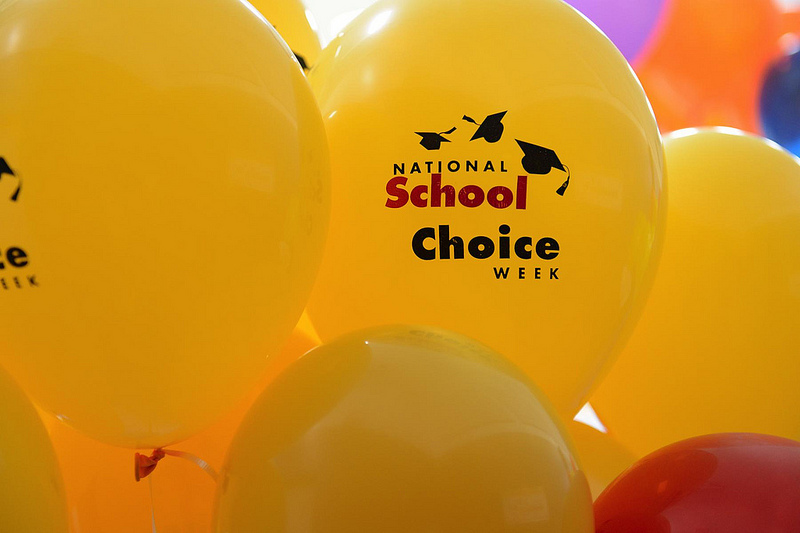National School Choice Week (NSCW) was first celebrated in the U.S. in January 2011 and is now recognized as the premier celebration of educational opportunity in the world. This year’s festivities will take place the week of January 21-27 and will include more than 32,240 events and activities in fifty major cities across America.
On January 26, 2017, President Donald J. Trump signed a proclamation making the fourth week in January National School Choice Week. “Because the education of our young people is so important,” says the document, “the parents of every student in America should have a right to a meaningful choice about where their child goes to school.” (https://www.whitehouse.gov/presidential-actions/national-school-choice-week-2017-proclamation/) 2018 events will include 20,200 public and nonpublic schools, 5,600 homeschool groups and 900 local chambers of commerce. Activities such as school fairs, parent nights, school tours, educational field trips, homeschool information presentations, student performances and public rallies promise to make this year’s celebration one of the largest education-related events in the history of the U.S.
In his 2017 proclamation, President Trump encourages families to learn what school choice means and to examine the various types of school choice available to their children.
What is School Choice?
The definition of school choice includes more than school vouchers or charter schools. Basically, school choice provides the opportunity for public education dollars to go with students to the schools that best fit their individual educational needs. Many families decide that the best way to exercise their school choice rights is to move to a neighborhood inside the school district they have identified as being the best option for their children. But school choice also includes a wide range of options for families who want to provide improved educational opportunities for their children.
Some available school choice options include:
Charter Schools – Because charter schools are already public schools, families do not have to use Educational Savings Accounts, vouchers or tax credits to pay to enroll their child in a charter school.
Educational Savings Accounts (ESAs) – Parents choose to withdraw their child from public school and are provided public funds to be deposited into a government-authorized savings account. The way in which the funds can be used is restricted but can often include private school tuition, online education options, private tutoring or, in some cases, a combination of public and private school offerings.
Homeschools – Also a form of school choice, homeschooling regulations differ from state-to-state. www.homeschoolfacts.com provides information about homeschooling laws in all fifty states. In some states, parents may have the option of using public funds or school vouchers for homeschooling expenses.
Individual Tax Credits and Deductions – Income tax deductions are allowed to parents for approved educational expenses which may include private school tuition, books, supplies, computers, tutors, etc.
Magnet Schools – Magnet schools offer educational programming and curricula that is not generally available in traditional public schools. Magnet schools are publicly funded, so parents can enroll their children without using alternative funding mechanisms.
Online Learning – This form of school choice provides the opportunity for students to complete courses and work with teachers entirely over the Internet. Students can also elect to combine online learning with a traditional classroom experience. Online schools can be either public or private and parents can elect to use some school choice options to pay for online learning.
School Vouchers – Using all or part of the public funding available for their child’s education, parents are allowed to place their child in a private school. The funds may be used to pay for full or partial private school tuition.
Tax-Credit Scholarships – Parents are allowed full or partial tax credits for donating to nonprofits that provide private school scholarships.
Why National School Choice Week is Important
The White House National School Choice Week proclamation perfectly summarizes why the event is important in improving educational opportunities in the United States: “By expanding school choice and providing more educational opportunities for every American family, we can help make sure that every child has an equal shot at achieving the American Dream. More choices for our students will make our schools better for everybody.”
To learn more about school choice options and what your city and state are doing to celebrate 2018 National SchoolChoice Week, go to https://schoolchoiceweek.com or visit Facebook at https://www.facebook.com/search/top/?q=school%20choice%20week.
.

